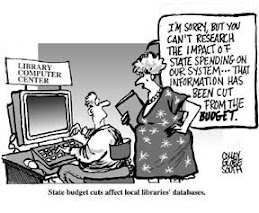Earlier that day I was able to interview the assistant director, Annette, to find out that “there has been a big increase in people within the last five years and circulation has almost doubled; the only negative thing is that property levels have dropped.” The big problem about this is that when property levels drop, the tax revenue goes down and that gives libraries less money to work with. This is one major problem that so many libraries are encountering today. So how was it possible that this library was gaining a new porch entrance, an enlarged meeting and children’s room, and updated bathrooms? (The Voice) No, this was not through winning the Michigan Lottery or a big donation; it was through good old dependable savings.
As writer Candice Williams for the Detroit News discovered, the budget of one million dollars came through in due part as advice by the planning commission to the director Margaret Thomas, to save her pennies for the next decade instead of asking the voters for the money. (DetNews**) Without this advice from the future, the library may have had to postpone such plans until the economy improved.
As it is, the deal is still a work in progress. As Lisa Gervais in the local newspaper, The Voice, reports that construction bids are the culprit for the holdup; the original plans are being cut back to work within the budget. (The Voice) This library has put its finance book down and is not willing to budge. Luckily the forward thinking MPL can look ahead to a newly updated and larger space.
Hopefully, other future planning libraries may be able to take this story as an example to start saving pennies and know that within a few years success will be reached.
(Pictured: The current facade of the Library)
**The Detroit News article is no longer available and must either be retrieved through buying the article or searching the Wayne State University Databases (Det News - "Library to Self Fund Fix Up" by Candice Williams on June 13, 2009) Sorry about the extra steps**





I think it's commendable that they saved the money for their renovation so they could give the community a better library and I think it's terrible that they had to. The library should have been able to use their savings for other things. Is this the trend of our future? I hope not. The world would be a sadder place if it is.
ReplyDeleteDol
I'm highly skeptical. Savings pennies makes good headlines, but what equipment, programs, services and employees were cut in the process? Maybe they were over-budgeted for years to begin with.
ReplyDeleteThe tax issue is an interesting point to raise. When I bought my house in Detroit, the 12 year tax abatement was a nice incentive. I realize that paying a great deal less than the going tax rate equals less revenue for the city and its services, but it also encourages people to move to the city and establish the area as a home. It's a double edged sword - we want people to live in our communities and use the services, but in may cases we need to create tax incentives to get them to do so.
ReplyDeleteFrom a funding perspective it is unfortunate that libraries in general tend to be counter-cyclical, that is, their use pattern runs counter to the normal business cycle. A normal business cycle dictates that when the economy is good, the demand for product increases, profits grow, and jobs are created. Libraries, on the other hand, suffer the opposite reaction. When people can't afford to continue their shopping sprees at Barnes and Noble, Blockbuster, and other media outlets, they turn to their local libraries. Most libraries lately, because of a down economy have fewer dollars to keep the doors open, their employees paid, etc. thereby creating a situation where more work has to be done with less resources, hence, counter-cyclical.
ReplyDelete